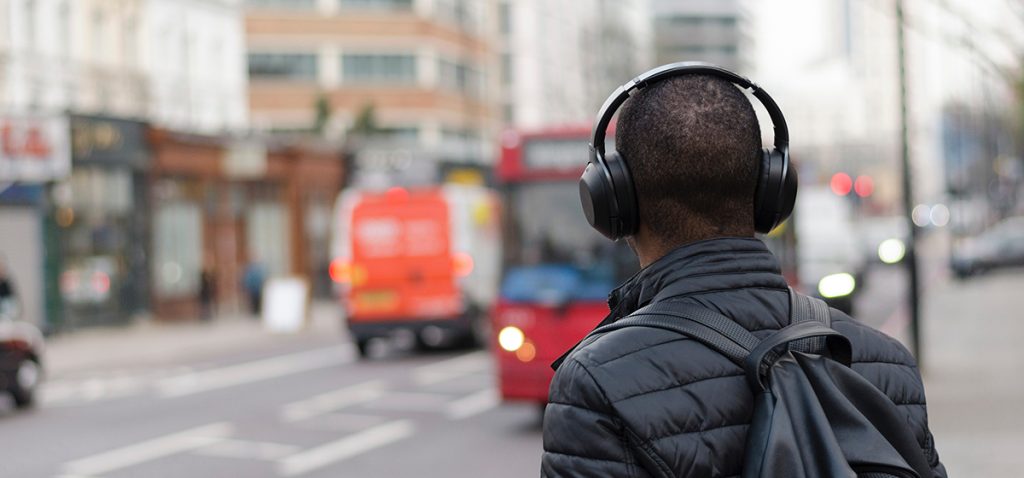Insight article

Guess where I went on the tube today?
I’m on the underground huddled up against London commuters on their way to work, blankly avoiding the gaze of my fellow passengers. Unbeknown to those vacant faces, I’m in Michigan. Rustic cabins, scary stories around the fire, ice-cold lakes, pine forests, camp legends; I’m listening to my favourite podcast, This American Life, and I’m transported to a summer camp. In this episode, the host and narrator Ira Glass sheds light on the magic that is camp. It’s easy to be baffled by the obsessive fixation Americans have with camp – an obsession that acts as a barrier between ‘camp people’ and ‘non-camp people’. I must confess, although not a life long camper, having worked at a summer camp in Seattle I definitely identify more with the ‘camp people’! In this particular episode we experience the power of storytelling to capture the essence of camp, shedding light on personal experiences, transporting the listener to Michigan and bridging this gap.
Whilst the host draws the outline, it’s the first-person stories of the children (campers) and counsellors who add depth and colour to the picture. Dave, a young man who worked his way up the ranks to become the much-anticipated counsellor and the main character in this story, takes the listener on a tour of camp. Immediately my spirits are lifted: I find myself wanting to sing along with the camp songs, join in with the energetic games and smell the smoke from the campfire. Songs, inside jokes, sailing and sun: it’s enough to momentarily replace the stress of daily life, intensified by technology and social media. In the words of Dave, “all the best moments of my life have happened at camp”. And for a moment, as the listener, you are right there with him, sitting in his cabin hearing the hilarious camp dance de-brief from the 13-year-old boys, joining in with the laughter and banter around a shared first kiss!
A sudden jolt brings me back to London. Victoria, only two stops left! I’ve reached part 5 in the episode, the story of colour wars: a camp wide tradition where children compete between their assigned colours in different activities, ranging from canoe races to war-cry competitions. The story traces a group of teenage campers, following the raw emotions they feel in the weeks leading up to the highly anticipated announcement of the colour captain, the greatest honour you can receive at camp. The night has arrived. Through my headphones I hear the crackle of the bonfire, and the tension as the girls are put out their misery and the colour captains are revealed. The elation and pure joy of the girls who received the honour and despair of the girls whose long-lived camp dreams have been squashed; it’s palpable through my headphones.
Through these personal stories, the podcast captures the essence of camp: a place for children that stands still in time, holding onto traditions and rituals, despite the ever-changing word around them. A place where children form bonds and connections with friends that are like no other, and just for a moment, on my commute to work, I feel the rush of nostalgia for my summer spent around the crackling campfire.
Whether it’s understanding the American love affair with camp, a father describing the everyday reality of raising an autistic son, teenagers from the Bronx’s poorest public schools experiencing a day in the life of a private school kid, or the life of a Mexican mother deported from America and separated from her three children, podcasts have the power to tell beautiful, honest stories, exploring the lives of ordinary people through an incredibly intimate lens. Today, podcasting has gone mainstream. With the number of US podcast listeners doubling in 3 years and UK weekly download rates reaching 4.7 million, podcasts are quickly becoming the new accessible way to engage with mind-blowing ideas, incredible facts and extraordinary stories.
The rise in podcast listeners has been attributed to a variety of influences, ranging from the increased ease of access via smart phones to the flexibility podcasts have over radio. Although this is undoubtedly a factor, we cannot ignore the power and influence storytelling plays in the success of podcasts.
People love listening to stories, and not just any story, stories that connect to our lived experiences, stories that we can relate to, stories that increase our understanding and empathy and stories that create shared identities. By connecting to one’s own lived experience, podcasting – through story – provides the trigger to evoke emotive memories of our own. Through this connection a common ground is established between podcaster and the virtual community who share the same, or similar experiences.
These shared identities are powerful, as human beings are instinctively motivated to act in ways that protect or maintain their identity. This kind of ‘digital storytelling’ is increasingly being seen as a mechanism for galvanising political and social change.
Stories spark imagination, they help us find meaning and context, they emotionally engage us in something bigger than ourselves and they build empathy by encouraging us to draw on our own experiences to find common ground with others. So what’s the secret to the success of podcasting? Well it’s the power and influence of storytelling!
Poppy Kearney
